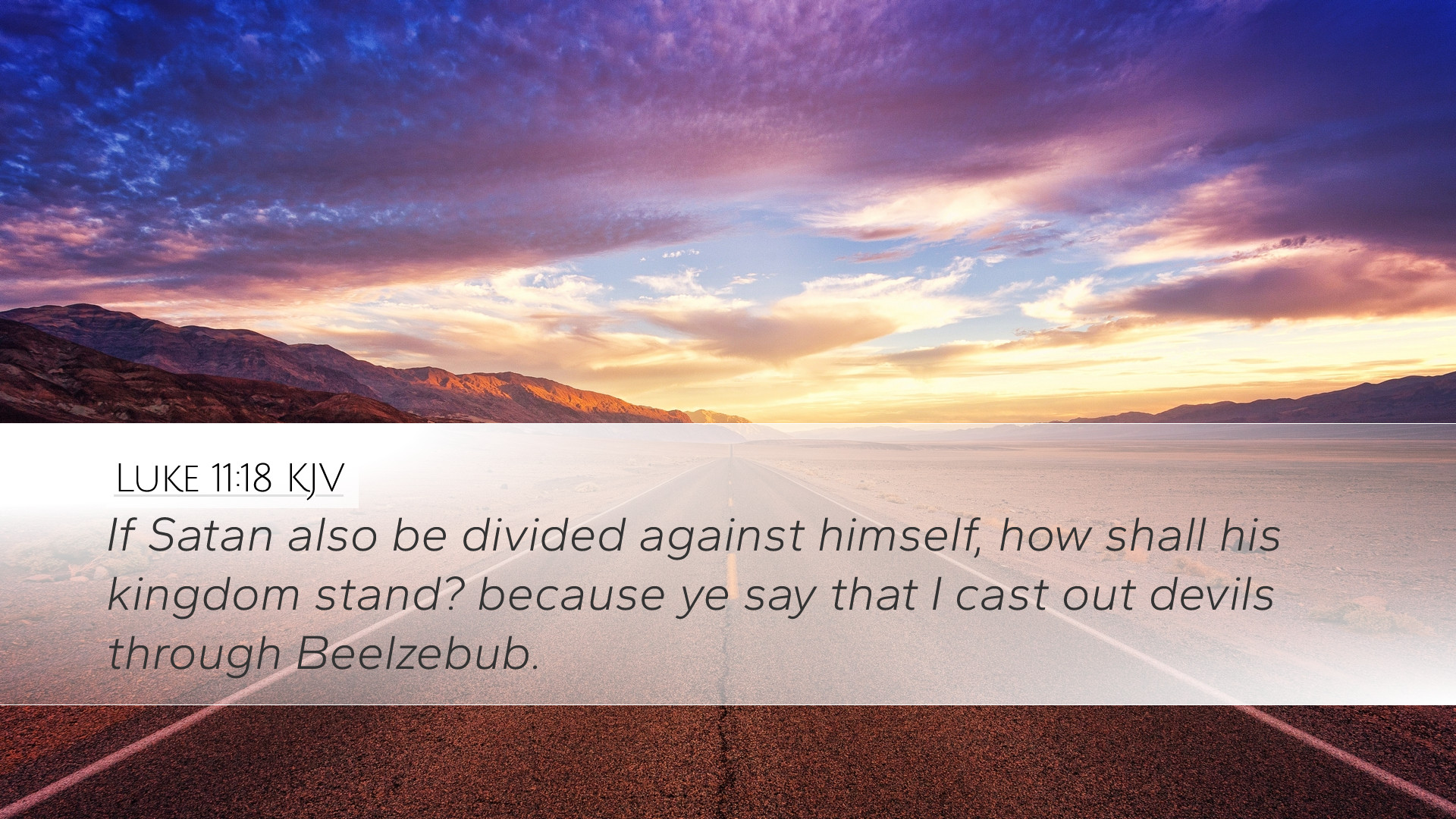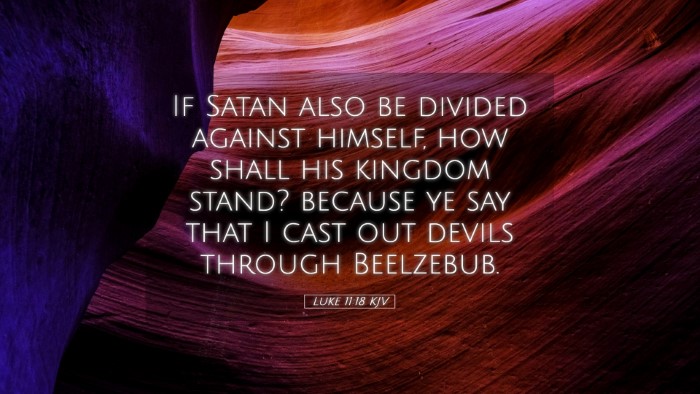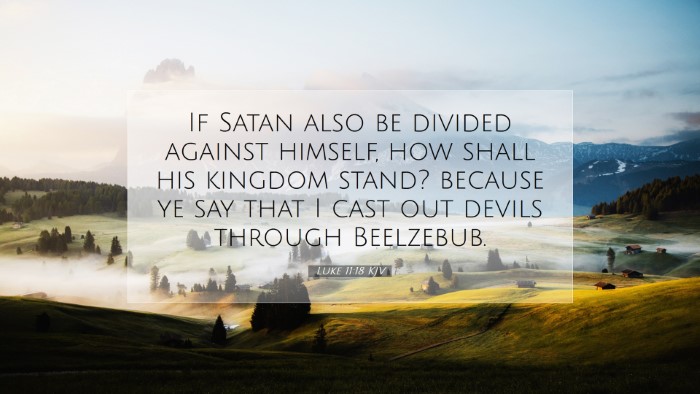Commentary on Luke 11:18
In Luke 11:18, Jesus provides a pivotal insight into the nature of spiritual conflict and the kingdom of darkness. The verse states:
"If Satan also be divided against himself, how shall his kingdom stand?"
Contextual Background
This verse arises during a significant moment in Jesus' ministry, where He has just cast out a demon. The reaction from the onlooking crowd is mixed—while some marvel, others, particularly the Pharisees, accuse Him of casting out demons by the power of Beelzebub, the ruler of demons. This accusation sets the stage for Jesus to address the misconception regarding the source of His power.
- Historical Setting: The Jewish leaders were keen on discrediting Jesus’ miracles as they threatened their authority and teachings.
- Theological Implications: Jesus’ response highlights the illogical nature of their accusations and introduces essential theological truths about spiritual warfare.
Analysis of Key Themes
Examining Luke 11:18 through the lenses of prominent biblical commentators reveals several critical themes:
1. Division Within the Kingdom
Matthew Henry emphasizes the importance of unity within spiritual realms:
"If Satan were to cast out Satan, his kingdom would fall; thus, he cannot have any enduring presence without unity."
This notion points to the self-destructive nature of division in any kingdom, including the domain of darkness. Henry's commentary stresses that the challenge to Jesus' divine authority fails when examined under this premise.
2. The Nature of Satan's Kingdom
Albert Barnes comments on the characteristics and stability of Satan’s kingdom, noting:
"Satan's realm is fundamentally built on deception and chaos; any action that contradicts that would inherently lead to its demise."
Barnes articulates that the presence of evil and its internal conflicts are ultimately signs of its impending downfall. If Satan were to engage in a civil war against himself, it would signify a collapse of authority and control.
3. Christ's Authority Over Demons
Adam Clarke adds depth by affirming Christ's divine position:
"The engagements of Jesus against demonic forces highlight His supremacy and the validity of His ministry."
Clarke illustrates how Jesus' actions of exorcising demons showcase not only a confrontation with evil but also reinforce His unassailable authority in establishing God’s kingdom on Earth.
Practical Applications
For pastors, students, theologians, and scholars, Luke 11:18 serves as a reminder that:
- Recognizing the Enemy: Understanding the tactics of Satan is crucial for spiritual warfare. Believers must remain vigilant and discerning in their fight against deception.
- Unity in Purpose: Like Jesus’ assertion about division leading to demise, the church must remain united in purpose to withstand external attacks and internal disputes.
- Celebrating Christ’s Power: The authority of Jesus in overcoming evil should be a central theme in preaching, highlighting His victory and empowering believers.
Theological Reflections
This verse invites further theological contemplation on the implications of Jesus' statements:
- The Nature of the Kingdom: Jesus offers an essential revelation of God’s kingdom contrasted with earthly kingdoms. Where other kingdoms are frail and susceptible to division, God’s kingdom is eternal and invincible.
- The Role of Believers: The calling for Christians to engage in spiritual warfare and stand firm against evil factions should not be taken lightly. Each believer is a soldier in a spiritual battle that requires awareness and preparedness.
Conclusion
In conclusion, Luke 11:18 is not merely a statement against accusations made about Christ; rather, it provides profound insights into the dynamics of the spiritual realm, challenges presented to Him, and the broader implications for God’s kingdom. As believers reflect on this passage, they are encouraged to understand the necessity of unity in their spiritual community, the reality of the enemy with whom they contend, and, most importantly, the ultimate victory secured in Christ.


